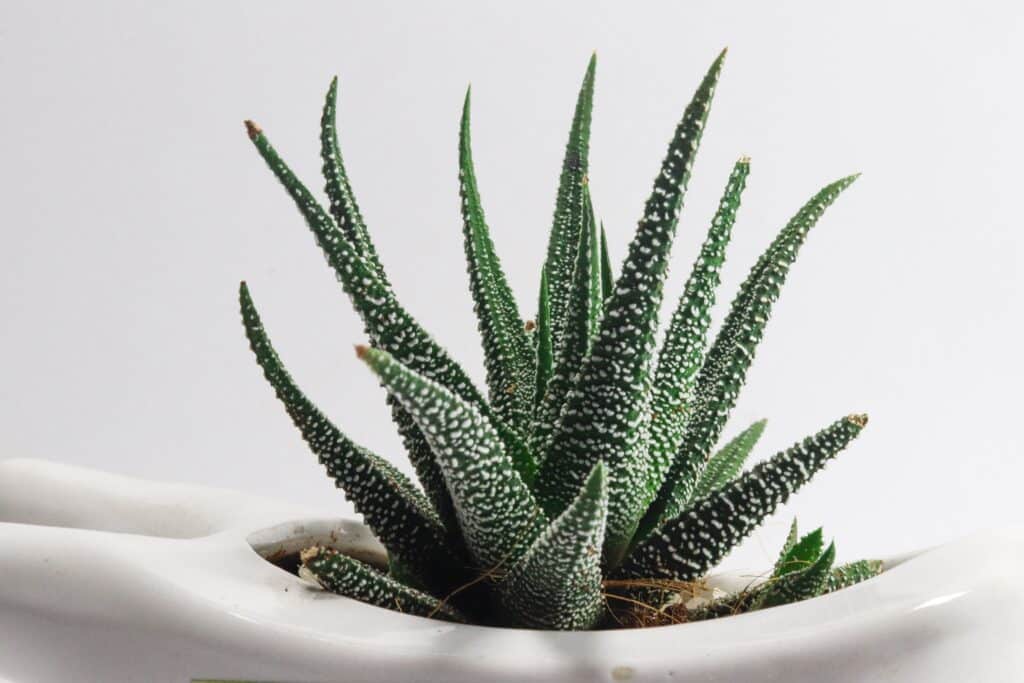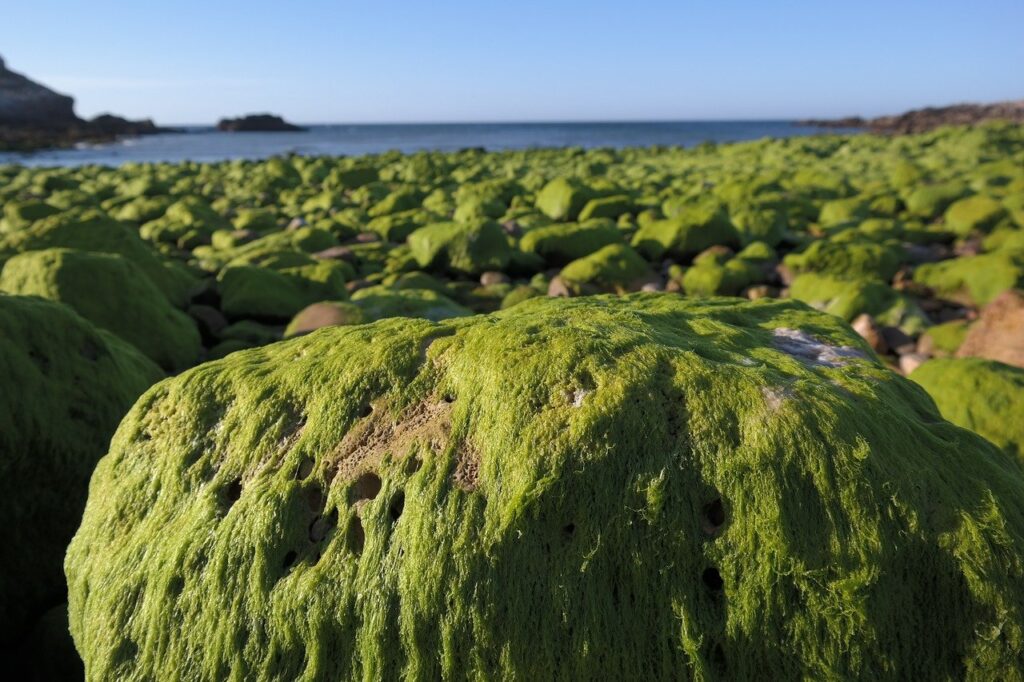written by: Allison Goins Ph.D. | January 30th, 2024 at 12:00 pm
Hyaluronic acid has almost become synonymous with hydration in skincare. It is present in so many skincare products, even if it’s not one of the star ingredients in a product, there is a good chance that one of its many forms is present. And like with everything some people love hyaluronic acid and other people don’t. Whether it irritates your skin or you just want to try some new there are tons of alternatives to hyaluronic acid. And particularly if you are looking for natural alternatives to hyaluronic acid, there is a treasure trove of natural ingredients that are hydrating powerhouses just like hyaluronic acid. So join us on a journey through the world of natural alternatives to hyaluronic acid.
What is Hyaluronic Acid | Aloe Vera | Green Tea Extract | Beta Glucan | Cucumber Extract | Mucin | Alginate | Honey | Hydrocolloidal Oat | Calendula | Sorbitol | Hydrolyzed Proteins
About the Author: Allison has a Ph.D. in material science. From studying the way cells interact with different materials in the lab to deep diving into the science of skincare ingredients’ interaction with our skin. I’m obsessed with cracking the code of skincare. Ditch the marketing mumbo jumbo and join me as I translate the science into real-world tips for clear, radiant skin. Let’s get nerdy about the science of beauty! For this article, I searched Google’ scholar for naturally occurring humectants that are popular in skincare, and clinical results to evaluate their penetration efficiency. Understanding how well the molecules penetrate and hydrate was important to compare them to the various types of hyaluronic acid.
What is Hyaluronic Acid and How Does It Hydrate?
Before delving into natural alternatives, let’s understand what hyaluronic acid is and how it works. Hyaluronic acid is a natural material that occurs in animals. This naturally occurring substance is a biopolymer that behaves like a humectant.
This means it can attract and hold onto water molecules. This is helpful in skincare because it can act as a water reservoir to keep your skin from feeling dehydrated. So now that we understand how hyaluronic acid works let’s explore the organic treasures that can match its skincare benefits.
Related Post: What Does Hyaluronic Acid Do: A Complete Guide
Aloe Vera: The Desert’s Gift
As a plant adapted to survive in the desert aloe vera, has to be able to hold on to water and a lot of it. It is filled with large sugar molecules that are like a bunch of tiny sponges that pull in water and hold on to it.
Related Post: Benefits of Aloe Vera for the Skin

This means aloe vera hydrates the skin just like hyaluronic acid. Most of the sugar molecules in aloe vera are pretty large So they are not going to penetrate the skin barrier like hyaluronic acid salts, but sit on top like larger hyaluronic acid.
Related Post: The Types of Hyaluronic Acid: Is Sodium Hyaluronate Different than Hyaluronic Acid?
Beyond its moisturizing abilities, it may offer antioxidant vitamins and minerals, to help neutralize free radicals from UV damage.
Beta Glucan: Small But Mighty
Derived from natural sources like yeast, fungi, or seaweed beta glucan can be found naturally but is also synthesized in labs. These sugar molecules function similarly to hyaluronic acid salts. While they do not hold as much water, they can penetrate deeper into the skin layers than a molecule like aloe vera.
Cucumber Extract: Soothing Quencher
You are probably going to start noticing a theme with all of these natural hyaluronic acid alternatives. Cucumber extract similar to aloe vera contains large sugar molecules that attract and hold onto water molecules. Because the molecules are larger they are not going to make it past the skin barrier. Instead, they sit on the top of the skin and act as water reservoirs for the skin to pull from throughout the day.

In addition to its hydrating benefits, cucumber extract has anti-inflammatory compounds like caffeic acid that can have a soothing effect on the skin as well. This is especially beneficial if you have damaged your skin barrier and your skin feels irritated or inflamed.
Related Post: Demystifying Your Skin Barrier: What Is It and How Does It Get Damaged
Mucin: The K Beauty Secret
Derived from snail secretion filtrate, mucin behaves like an occlusive, creating a protective hydration barrier on the skin’s surface. These large proteins can attract water like a humectant but they are so large they do not penetrate the kind surface. Instead mucin seals in moisture, providing hydration and aiding in barrier repair. This is most similar to the highest molecular weight hyaluronic acid derivatives in skincare.
Related Post: Snail Mucin for Skin: The Secret to Flawless Skin?
Snail secretion filtrate, the most popular source of mucin in skincare (particularly Korean Skincare) also has some barrier-calming, antioxidant, and antibacterial properties.
Alginate: Botanical Hydrator

Isolated from algae, alginate is another among the list of natural alternatives to hyaluronic acid which is full of large sugar molecules. Like the other molecules is a humectant similar to larger molecular weight hyaluronic acid. It is not effective in penetrating the skin, but it can provide hydration for your skin to pull down to the dermis when it needs it, making it an excellent alternative.
Related Post: What is a HydroJelly Mask: Alginate Face Masks
Honey: Viscous Hydration
Honey, a naturally occurring polysaccharide, attracts and retains water, serving as a moisture reservoir. This is probably the one hyaluronic acid alternative on this page that has been used the longest in skincare. There is evidence, ancient societies like the Egyptians, Greeks, Africans, Persian, Quaranian, Indians, and so many more have documented using honey to treat wounds and skin irritation.
Related Post: Honey in Skincare: Should it be in Your Routine?

Not only does honey act as a hydrating humectant, but it also contains vitamins, nutrients, and antimicrobial properties, making it a sweet alternative to hyaluronic acid.
Hydrocolloidal Oat: Gentle Hydrator
Derived from oats, hydrocolloidal oat turns into a gel, soothing damaged skin and providing emollient effects. This is the one natural alternative to hyaluronic acid on this list that does not have the same hydrating mechanism as hyaluronic acid. However, it felt important to add it to this list, because it is one of the most science-backed ways to hydrate your skin and soothe your skin barrier. It’s perfect for those looking for a hydrator that holds onto existing moisture.
Related Post: Colloidal Oatmeal Skin Benefits: Should It Be In Your Skincare Routine?
Colloidal oatmeal was actually approved by the FDA in the 1980s as a safe over the counter treatment for skin irritation. For this reason, it felt like I could not leave it off of a list of natural alternatives to hyaluronic acid, despite it not having the same hydration mechanism. This is one of my favorite natural skincare ingredients. The Aveeno Calm + Restore Oat Gel Moisturizer which contains hydrocolloidal oat is one of my go-to travel moisturizers to bring my skin back after a long dry plane ride.
Calendula: Marigold Magic
Extracted from marigolds, calendula’s polysaccharides act as humectants. These large sugar molecules work similar to large hyaluronic acid molecules. There was no data available on Calendula’s ability to penetrate the skin so I would not make assumptions that it can penetrate the dermis like a hyaluronic acid salt.
Calendula not only hydrates the skin but there is also evidence it has antioxidant properties and tissue regeneration benefits.

Sorbitol: Fruity Hydration
Found in fruits like apples and berries, sorbitol is another small molecule that gently draws moisture, making it a mild humectant suitable for sensitive skin. It is most similar to hyaluronic acid salts because it can penetrate the skin barrier and pull water molecules deeper into the layers of the skin.
Hydrolyzed Proteins: Skin’s Hydration Allies
Derived from plant or animal sources, hydrolyzed proteins easily draw in water. These molecules are too large to be absorbed into the skin. However, they are effective at, attracting and binding moisture for a supple, hydrated feel. Hydrolyzed hyaluronic acid or hyaluronic acid copolymers are the most similar to hydrolyzed proteins.
Related Post: The Truth About Collagen Skincare
Embrace Nature’s Bounty
In conclusion, the world of skincare extends far beyond synthetic solutions. Natural alternatives to hyaluronic acid offer a holistic approach, marrying effectiveness with natural sources. If you are looking for a way to add a fresh but effective change to your skincare routine all of these natural alternatives are effective and great options.
Whenever natural alternatives to common skincare ingredients are discussed one thing to be mindful of is sustainability. While it can seem counterintuitive naturally sourced ingredients can actually be worse for the environment or can have unintended consequences like taking away food for cosmetic applications.
Similarly, all plants are different so products that use plant-based extract are not always as consistent in composition. For a product like a moisturizer, it is probably fine that there is variability from product to product. However, if you are looking to target something more stubborn like fading dark spots you may want to consider a synthetic option.
So while natural alternatives to hyaluronic acid can be great there are some drawbacks and considerations to be mindful of.
Do you have a favorite natural alternative to hyaluronic acid? I would love for you to leave a comment so I can hear which of these are your favorite or if there is one missing from this list.
If you liked this article and want to make sure you do not miss any new posts and skincare insights sign up for the Relatable Science Report, our weekly newsletter below. Every week you will get an email covering the information you need to optimize your skincare routine for results.
